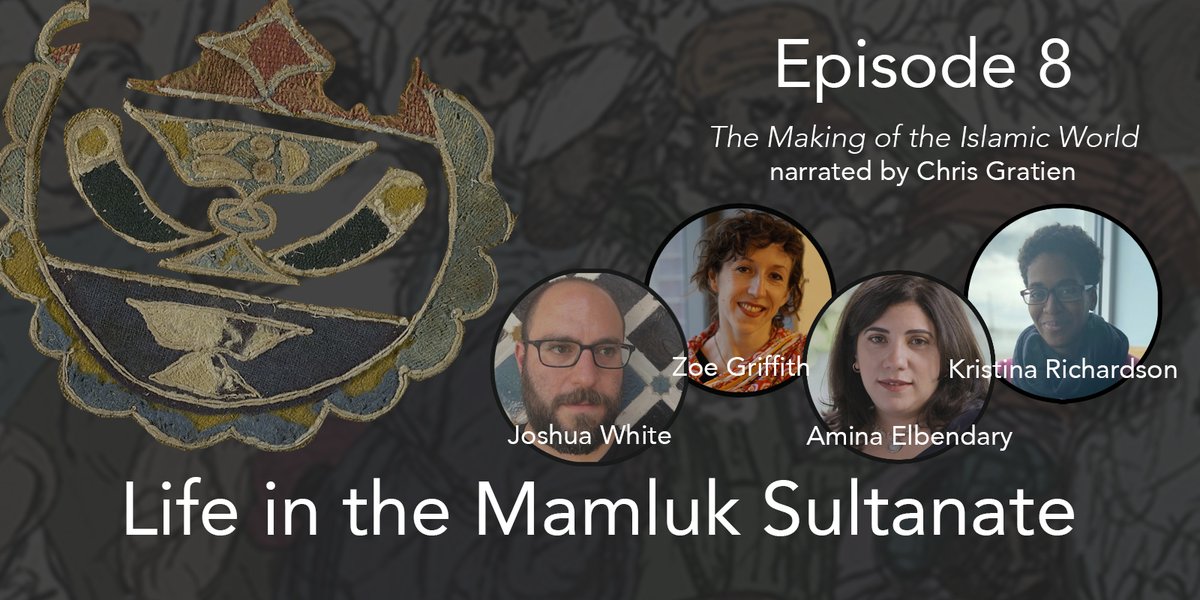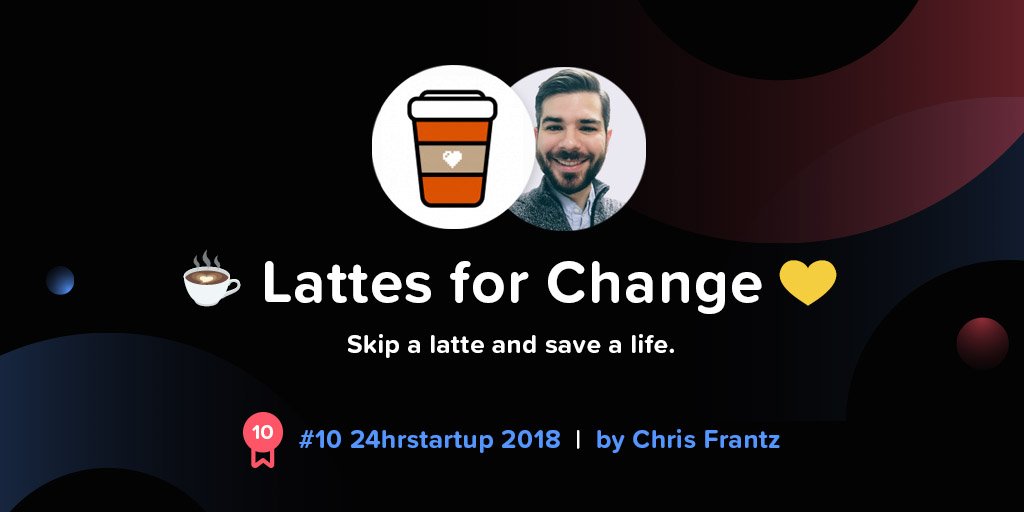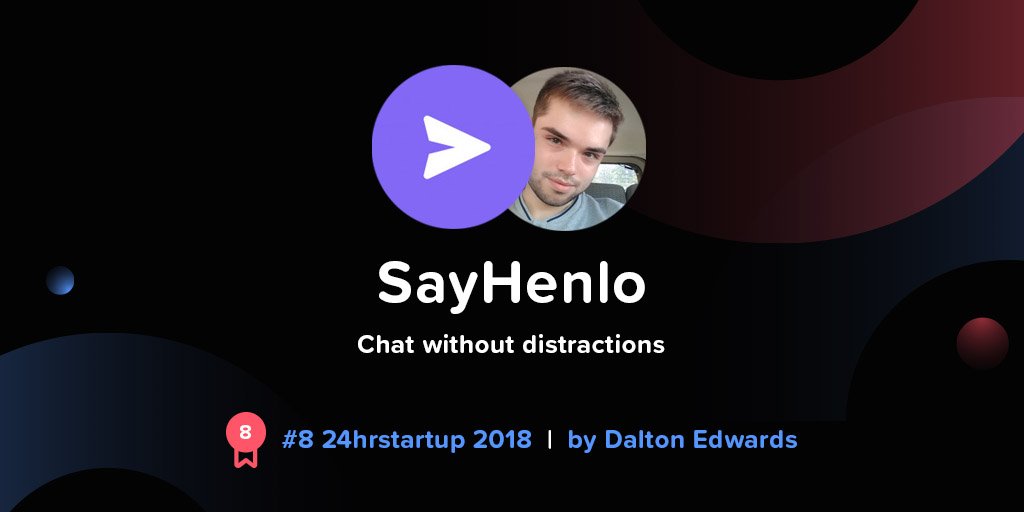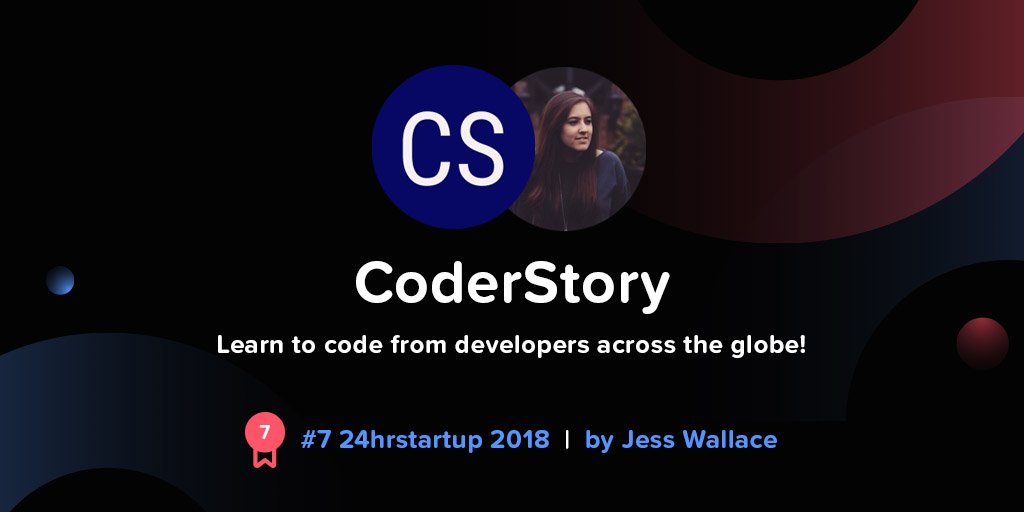This is Chris Gratien posting. I created this series during Fall 2020 for my students as asynchronous material supported by readings and discussion. This is going to be a long thread, but it will be a great shortcut for those looking to make similar use of these materials.
There are two items worth pointing out: 1. This is an overview of the political, social, and cultural history of Islamicate societies. It does not deal with the origins of Islam or many theological questions. It does discuss Islam’s spread and the transformation of Islamic law.
2. This is the first part of a two-part sequence that takes the history of the Islamic world into the present. It emphasizes developments and themes that have particular relevance for later periods.
This is really a multivocal narrative of Islamic history. We feature over 20 scholars from almost as many institutions. Many of those who worked on it, myself included, study the early modern and modern era but have teaching obligations that take us further back in history.
Producing the podcasts on such a tight schedule was challenging. I am grateful to all who contributed, especially the core of contributors who helped develop this series and found time to chat throughout the fall as I gathered material and assembled the episodes. Here they are:
Josh White normally teaches this class at UVA, and he was basically on call throughout the semester for audio and comments. His own work is about the history of the Ottoman Empire. Read about it in his book “Piracy and Law in the Ottoman Mediterranean.”
I also could not have made this series without Fahad Bishara (@TheNakhoda). He suggested that podcasts without a visual component work nicely as a break from the screen. You’ll hear him on economy and global connections. He’s also got a great book entitled “A Sea of Debt."
I consulted at length with Zoe Griffith (@zoeanngriffith) and drew on her experience teaching similar material. You’ll hear her anytime Egypt comes up in the series. You've also heard her many times in the interviewer role on Ottoman History Podcast:
https://t.co/B1obAuKMd5
Neelam Khoja offered valuable guidance in formulating the series and was always ready to talk about the Persianate world and the history of South Asia. Look forward to her book project “Known Geographies: Afghan Societies, Sovereigns, and Space in Iran and Hindustan, 1450-1880.”
Maryam Patton (@maryampatton) is a regular contributor on OHP. She provided a thread of intellectual history in the series from the Abbasid translation movement to early modern Europe. She's working on a Ph.D. about intellectual exchange in the early modern Mediterranean.
Jeannie Miller (@jeelmi) provided the background on the history of Arabic literature for the series. She offered material from her own teaching in a pinch on more than one occasion. Her book “Al-Jahiz, the Quibbler: Equivocations in Kitab Al-Hayawan and Beyond” drops in 2021.
I turned to Aslıhan Gürbüzel for insights on the emergence of Turco-Persianate culture and the spread of Sufi movements. She was especially instrumental in creating Episode 3 “Rumi’s World.”
To build our episode on Islam in West Africa, I teamed up with Wendell Hassan Marsh (@theafrabian), who teaches a course on “Islam and Blackness in Global History” at Rutgers-Newark.
I also worked with my former colleague at the Harvard Academy Rabiat Akande (@RabiatAkande), who was generous with her time and knowledge. She's doing exciting work on the history of modern West Africa and is also licensed to practice law in both Nigeria and the US.
These scholars' contributions went way beyond a Zoom call or email exchange. They all gave hours of time, often late at night after a long day with their own teaching and research or in precious moments of respite from child care -- and during a pandemic no less.
Moreover, each of them ventured beyond the bounds of their own research out of a shared commitment to the idea of public and free resources for teaching and learning about the Islamic world. Hopefully this series will prove useful to them and to you all.
These are just some of the voices you’ll hear. In addition to new material, we drew on the OHP catalog, which is published under a CreativeCommons license allowing re-use (non-commercial w/attribution). Should anyone wish to replicate this experiment, there's lots to explore!
Each episode of The Making of the Islamic World is between 60-80 minutes and focuses on a particular time and place, building on a set of themes we trace throughout the series. In every installment, you’ll hear 3-5 voices, some of whom appear in multiple episodes.
Each episode also comes with bonus material and suggested readings. In my class, each episode came with a listening activity as well as some supplementary readings that served as a basis for further in-class activities and discussion.
We will also be following up with “thematic supplements” to these ten installments that go deeper into particular themes that tie in with the main episodes. Some are already available on the website. Suggestions welcome!
A note of caution: Because there are many unfamiliar names and terms in these podcasts, I recommend providing a word list and defining some of the terms for students. It is also helpful to provide questions that highlight the takeaway for the episode and build towards discussion.
The first episode “What is Islamic Law?” features the voices of Saadia Yacoob (@SaadiaYacoob), Intisar Rabb (@intisarrabb), Josh White,
@TheNakhoda, and audio from an interview with Joel Blecher (@joelxblecher) by Shireen Hamza (@ibn_shireen)
https://t.co/AYHV1XFYBx
This episode is aimed at conveying simple points: Islam and Islamic law must be historicized and situated within particular contexts. It is hard to generalize about Islam in a manner that describes all times and places. Islamic law is expansive and has always contained debate.
Highlights:
@SaadiaYacoob furthers a feminist approach to Islamic law rooted in history.
@intisarrabb recounts a story that reveals the problems of thinking about sharia without history.
@joelxblecher show how a single saying of the Prophet gave rise to volumes of debate.
In class discussion, we focused on verses of the Qur’an.
https://t.co/874Cuw95PP is a great tool for this bc it puts different translations side by side. The differences become a quick window onto some of the history of interpretation and debate behind the translations.
I also recommend checking out
@SHARIAsource (
https://t.co/XhVxeArRQu) for more primary source readings on the history of Islamic law. There is a lot there publicly accessible in translation!
Episode 2 is about “The Imperial Caliphates”: the Umayyads and the Abbasids. You’ll hear Joshua White,
@TheNokhoda, @maryampatton, @jeelmi, and audio from an interview with Hugh Kennedy recorded by Taylan Güngör in 2016.
https://t.co/Yn70tLhWr0
This episode discusses the rise of dynastic empires built on the long tradition of statecraft in Persia and the Levant. It deals with the contentious succession of both the Umayyads and Abbasids and then explores the developments and institutions that occurred.
Highlights:
@TheNokhoda discusses the sometimes complicated question of land tenure and taxation in a very accessible way.
@jeelmi talks about her work on al-Jahiz and his works reveal about the changing social fabric of the Muslim community.
With this episode, my students read sections of Tabari’s history on Zanj Rebellion paired with this article by Rachel Schine (@RachelSchine):
https://t.co/fT78EdXgL2
In discussion, we tried to tease out the debates about the Zanj rebellion. This activity works better when students read a few of the competing interpretations of the Zanj rebellion. If you need just one take, I suggest Abdul Sheriff’s article in CSSAME:
https://t.co/jM4jivu5l9
If you’re interested in developing the theme of the Caliphate further, our complete interview with Hugh Kennedy is a great starting point!
https://t.co/dUl2Z09pFz
And don't forget that there is an entire podcast project dedicated to this period:
@AbbasidHistory hosted by
@TalhaAhsanEsq . Check it out!
https://t.co/wPfes1BmAg
Episode 3 is called “Rumi’s World.” It is about the emergence of Turco-Persianate cultures and polities between the 9th and 13th century. You hear Joshua White, Neelam Khoja, Aslıhan Gürbüzel, and
@maryampatton. https://t.co/KGiq7uFTxI
This episode introduced the idea of a cultural synthesis that arose with Abbasid fragmentation and the diffusion of Arabic high culture. Rather than an antagonism between different cultural regions and states, we point how these different Islamicate cultures became intertwined.
Highlights: Josh White helps us with the parade of -id dynasties from the 9th century onward. Aslıhan Gürbüzel profiles al-Ghazali and his pivotal place in the history of Islamic scholarship and Sufism. Neelam Khoja discusses enduring legacy of Persian works like the Shahnameh.
My students read sections from Ibn Sina’s “Canon of Medicine,” Biruni’s writings on India, and excerpts from correspondence between the two scholars translated here:
https://t.co/TEeu1FvyKm . In class, we read and discussed translations of poetry by al-Hallaj and Rumi.
The bibliography on our website has great leads for more work in translation as well as some essential scholarship. Recommendations for additions are welcome!
Episode 4 “Fragments of the Fatimid Caliphate” is indeed about the Fatimid Caliphate and the methods historians have used to reconstruct its history. It features Marina Rustow (@mrustow), Neelam Khoja,
@zoeanngriffith, and
@TheNakhoda. https://t.co/lnfhIjYGon
This is the best episode in our series for conveying how historians do what they do. It revolves around the Cairo Genizah, a massive trove of manuscripts that survived in the storeroom of a synagogue, and what it reveals not just about medieval society but also the Fatimid state
Highlights:
@mrustow recounts uncovering Fatimid state documents in the Genizah collection. Your students will appreciate her comparison of Fatimid decrees to “Pete Townshend’s guitar,” though they might be like “who?” and you can smugly reply “exactly!”
An activity that worked well used the searchable Genizah collection. Students were tasked with searching topics of interest in the catalog and speculating as to what the docs they found might tell historians. I was impressed their use of clues
https://t.co/3uWeA92Yu5
This episode also deals with the emergence of Ismailism. Khalil Andani’s (@KhalilAndani) article "A Survey of Ismaili Studies Part 1: Early Ismailism and Fatimid Ismailism" from Religion Compass to get a handle on the many debates:
https://t.co/cfGMQ1pOeg
Also, look forward to my complete interview with Marina Rustow about “The Lost Archive.” We talk more about the Genizah and the Fatimids, but this book makes a much bigger argument about how we conceptualize pre-modern states in the Islamic world. It is quite an achievement.
Episode 5 is called “Legacies of al-Andalus.” It’s about the early centuries of Muslim Iberia and their legacy for both the Islamic world and Europe. You’ll hear Mohamad Ballan (@Ballandalus),
@TheNakhoda, and
@jeelmi. https://t.co/s8Jr7JOCDs
We present Iberia (modern-day Spain and Portugal) as a distinctive center of the Islamic world highlighting its broader connections. After providing an overview, we talk about the cultural space of al-Andalus and its legacies long after Islamic polities waned in the region.
Highlights:
@Ballandalus explains what the concept of al-Andalus and an Andalusi identity signified, and how it offers an alternative to some of the older framings.
@jeelmi talks about how Arabic frame narratives found their way into European literature.
My class was listened to the album Siwan (2009) (H/T to Mehdi Hesamizadeh)
https://t.co/KrDjRibDmY . We read translations of the lyrics to the songs focusing on mysticism and talked about why the artists may have put music in Arabic and Spanish side by side.
In class, we also talked about the impact of Arabic on the Spanish language and crowd-sourced itineraries for post-COVID tours of Islamic Spain, Islamic Lisbon, and Islamic Sicily.
As a complement to this podcast, I recommend checking out my interview with William Granara about Muslim Sicily and its legacies. It ties in nicely.
https://t.co/cOCPyjLXgK
I also recommend Graham Cornwell’s (@ghcornwell) interview with Sumaiya Hamdani about the story of Abu as-Salt: “An Andalusi in Fatimid Egypt.” It is the perfect link between Episode 4 and Episode 5 of this series:
https://t.co/7qSMrHdMSQ
Finally, to think more about the contemporary legacies of al-Andalus, check out
@ibn_shireen’s interview with Anna Cruz about al-Andalus in the poetry and music of the 20th century
https://t.co/imu69bI9M5
Episode 6 “The Crusades in an Islamic Context” offers an introduction to what the Crusades looked like from within our region of study. We hear Joshua White,
@zoeanngriffith, @maryampatton, and excerpts from an OHP interview with Gary Leiser from 2013.
https://t.co/VE2VzrrnrG
This episode cuts through some of the lore about the Crusades that students might know, drawing extensively on Arabic sources from the period.
Highlights:
@zoeanngriffith talks about the importance of Saladin or Salah al-Din al-Ayyubi. She also reads a passage by Imad ad-Din al-Isfahani, which Leiser describes as “softcore porn.” It’s really not an exaggeration. Make sure to listen before assigning in class!
As a companion in my class, we watched the Egyptian movie “Saladin the Victorious” directed by Youssef Chahine, currently available on Netflix. We discussed the political context of the film as an example of how historical memory functions within the societies of the Middle East.
There are great translated primary sources. My favorite is Usamah ibn Munqidh. For secondary reading, we recommend “The Race for Paradise” by Paul Cobb (@cobbpasha) as a masterful overview of the Crusades written from the perspective of Islamic sources.
https://t.co/LyKe9npow5
Episode 7 “The Mongols and Muslim Societies” covers the Mongol conquests through the formation of Ilkhanate and the eventual rise of Timur. Josh White,
@zoeanngriffith, and Neelam Khoja, and material from OHP interview with Sara Nur Yildiz (@SN_Yildiz).
https://t.co/BeNyYgoeXi
This episode plays with familiar tropes of destruction and creation that dominate Mongol historiography. We discuss why the theme of destruction loomed large for so long and why more recent scholars have turned to other legacies of Mongol rule.
Highlights:
@SN_Yildiz explains why we need to study Mongols instead of narrating Anatolia's history in terms of a “pre-Ottoman” Seljuk period. Neelam Khoja offers exquisite portrait of 15th C Herat. Josh White talks about portrayals of Tamerlane in European theatre and opera.
In class, I divided students in 2 groups. One tasked w arguing for the theme of destruction and the other for creation. I gave them a chance to pool notes and search web before debate. A good way of rehashing main points/highlighting limits of framing history in valued terms.
This Met Museum exhibit on “The Art of the Ilkhanid Period” made for great supplementary activity for homework:
https://t.co/MsyFbQzo9v
I also assigned a lengthy translation of a Timurid waqf document from “Timurids in Transition” by Maria Subtelny. Very rich
https://t.co/9yBVb9gCNh
One topic we didn’t have time for is debate about relationship between the Mongol conquests of the 13th C and the Black Death of the 14th C. Look forward to a forthcoming interview with Monica Green (@monicaMedHist) about her important new article in AHR:
https://t.co/bkpBNYZGsW
Episode 8 under the heading of “Life in the Mamluk Sultanate” is about the Mamluks and their capital of Cairo. It features Josh White,
@zoeanngriffith, Amina Elbendary (@aminaelbendary), and Kristina Richardson (@krisrich).
https://t.co/BFzz62yjp3
This episode presents the Mamluk Sultanate as a polity that emerged out of extreme historical contingency to become remarkably stable in its institutional form. We talk about the transformation of Cairo and political and social life in the Mamluk capital.
Highlights: Josh White explains why the Mamluk warrior was akin to the mounted archer of the Steppe “perfected in the lab.”
@krisrich previews her new project on the print culture of the Ghuraba.
@aminaelbendary explains how protest was part of daily life in Mamluk Cairo.
As a companion, my students read excerpts from Mamluk scholar al-Nuwayri. In class, which happened to fall the day after the US Presidential Elections, we discussed his section on the definition of a good ruler, and it was quite an uncanny moment.
OHP featured an interview with Elias Muhanna (@QifaNabki) about his translation of al-Nuwayri’s compendium "The Ultimate Ambition in the Arts of Erudition." For those who want more on intellectual life in the Mamluk Sultanate, it’s one I recommend:
https://t.co/skzk1wihLD
Episode 9 entitled “Islam at a Crossroads in West Africa” deals with the spread of Islam in West Africa up to the 17th century. I spoke with
@theafrabian, @RabiatAkande, and Ann McDougall.
https://t.co/SOM565ETQb
This episode is about centering West Africa as opposed to treating it as a marginal in the history of the Islamic world. We pay attention to the Sahel region on the southern side of the Sahara and the polities that took shape there.
Highlights: McDougall explains why salt is so critical to understanding the politics of pre-modern West Africa. She and
@theafrabian also detail Ahmad Baba of Timbuktu’s legal opinions on slavery and its relevance during the racialization of slavery from the 17th century onward.
With this my students read excerpt of Ibn Battuta’s travels in Sub-Saharan Africa alongside Chapter 3 of “Journeys to the Other Shore” by Roxanne Euben, which outlines the debate about whether Ibn Battuta actually undertook all or any of the travels ascribed to him.
In class, we talked about the genre of the travel narrative in medieval and early modern history and discussed how we could use such sources even if we are not sure whether people like Ibn Battuta actually witnessed what they claimed to.
We also read a brief excerpt by al-Umari of Mansa Musa’s visit to the Mamluk capital of Cairo. It is short, rich, and ties in nicely with Episode 8 on “Life in the Mamluk Sultanate.”
https://t.co/c7hnctcUsb
For further reading associated with this podcast, we recommend “African Dominion” by Michael Gomez. It recasts West Africa as a center of the medieval Islamic world within the context of global history:
https://t.co/eZUNDk9kLt
Ottoman History Podcast also has two interviews that I would recommend for more on Islam in West Africa. In one,
@ibn_shireen and Abdul Latif interview Ousmane Kane about “Beyond Timbuktu”
https://t.co/2AvsVOgKnn.
In the other,
@ibn_shireen interviews Olduamini Ogunnaike about tradition of sung poetry called madih:
https://t.co/O5kUfnQD7S
Episode 10 “The Early Modern Islamic World.” It ties together all of the threads by returning to 8 repeat voices.
@ballandalus, Josh White,
@zoeanngriffith, Aslıhan Gürbüzel, Neelam Khoja,
@TheNakhoda, @maryampatton, and
@jeelmi. https://t.co/bfYh2TO6Uo
This episode is about rupture and continuity in the early modern Islamic world. We start with the end of Muslim Iberia and move to the Ottoman conquests. Then we talk about the Safavids and Mughals, as well as the Indian Ocean world. We conclude with notes on intellectual history
Highlights:
@ballandalus talks about scholar-statesmen Ibn Khaldun & Ibn al-Khatib. Aslıhan Gürbüzel discusses numerous imperial legacies that comprised the pragmatic Ottoman state.
@jeelmi explains why some texts of classical Arabic canon are in part early modern products
For class, my students read excerpt from Ibn Khaldun’s Muqaddimah on transformations we charted throughout the course. We also read excerpts of Baburnama and discussed how they can be read with an ecocritical lens. The section on Babur's garden in Agra is great!
This episode is a brief introduction to what could comprise an entire course. Since our wheelhouse is really the early modern and modern periods on OHP, you’ll find lots more in our catalog.
https://t.co/f2Pelljeu4
I hope to follow up with additions to this series to take our survey of the Islamic world into the 20th century. That’s it for now. Please chime in with your comments and questions, and if you’re using these podcasts with classes, let us know how it went!


















































